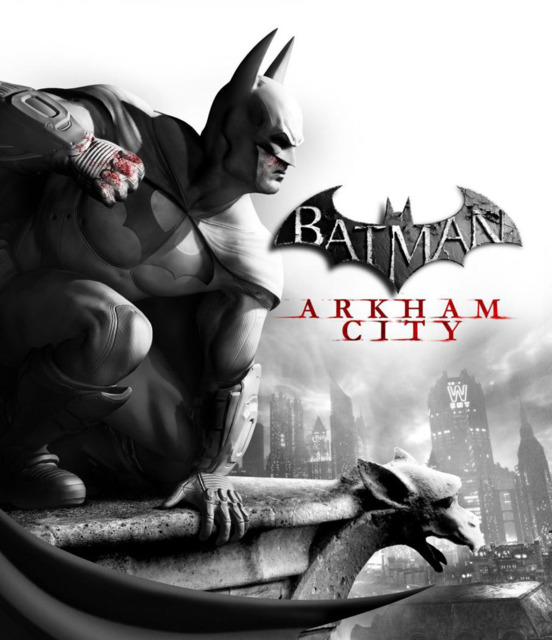Something that most RPG gamers are aware of, the morality meter, provides a quick and easy way to track your moral progress. Am I evil, good, or somewhere in between? A choice is good or bad, moral or immoral, paragon or renegade; it all depends on the game. By saying one thing, doing an action, you're awarded a certain kind of point. Your appearance may change depending on your alignment, and you'll get one of three endings to correspond to your choices.
We all know that Batman is the ultimate good guy (aside from that jerk-ass Superman); a man willing to sacrifice his love and life for the good of the many. Gotham is crawling with murderers, rapists and supercriminals of all sorts, and Batman is the man who is set to take them all down. He is Atlas, posed to shoulder the wight of the world on his shoulders. Training from childhood to become the perfect crimefighting machine, Batman is unstoppable and infallible, unshakable and unbeatable.
It's this expectation that sets Batman up to be such a wonderful character. Arkham City stands by the side of The Killing Joke as a glimpse into what may very well be the worn-out, shattered psyche of the Bat. As Arkham City starts out, Batman is stone-cold and set on tearing Arkham City apart from the inside, to put an end to Strange's plans and protect his beloved people. Quickly, Batman is infected by Joker's blood, beginning the countdown to Batman's death.
The crumbling will of Batman first arises when you meet Victor Fries (aka Mr. Freeze), clinging on to life while being cooked alive in a tropical museum exhibit. The only thing keeping Freeze alive is a canister of liquid attached to his chest, keeping his internal temperature sub-zero. As Freeze defied Batman and denies him access to the necessary tools to progress, Batman tears out the canister and begins to dump it on the floor, demanding that Freeze cooperate. Batman is not shy of threatening those who oppose him, but to throw Freeze's life in the balance by taking him off of life support is a rash, emotional move. Knowing that he could very well die, Batman is rubbing up against his only rule- thou shalt not kill.
The next eruption of Batman's anger and fear is, again, with Freeze. Freeze demands that Batman rescue his wife if Batman is to have the cure. Locked away in a vault, so incredibly close, Batman opts to fight Freeze for the cure, rather than attempt to save his wife. The battle is ended with Batman on top of Freeze, smashing the glass of Freeze's suit and repeatedly striking Freeze in the face. Once the safe is opened, it's revealed that Harley Quinn had broken into the safe and stolen the cure. In Batman's confusion and fear, he opted to fight Freeze, which cost him the cure and potentially thousands of innocent deaths of the people of Gotham.
Finally, when faces with the decision of finding and saving Talia al Ghul, his love, or deactivating Protocol 10-which is currently launching helicopter strikes and missiles all over Arkham City-he attempts to follow Talia. Alfred and Oracle have no choice but to cut off his satellite access, so he has no choice but to disable Protocol 10. As Alfred suggests, the lives of thousands are far more important than the lives of one single person. Even faced with this, Batman tried to rescue Talia, eschewing Alfred's ultimatum. Batman, the man who set out to stop all crime, had to be forced into preventing mass murder.
It's not often that we see Batman in a light other than the World's Greatest Detective; he is calm and logical in all situations, going about his objectives in a methodical, paced fashion. Arkham City, however, puts his life-and the lives of those he loves-in danger, forcing him to choose between his legacy or his feelings. Batman isn't a perfect figure, and it's more apparent than ever in Arkham City. With no morality meter to guide him, no definite feedback to what he should and should not do, the World's Greatest Detective is forced to do some soul searching.

Log in to comment